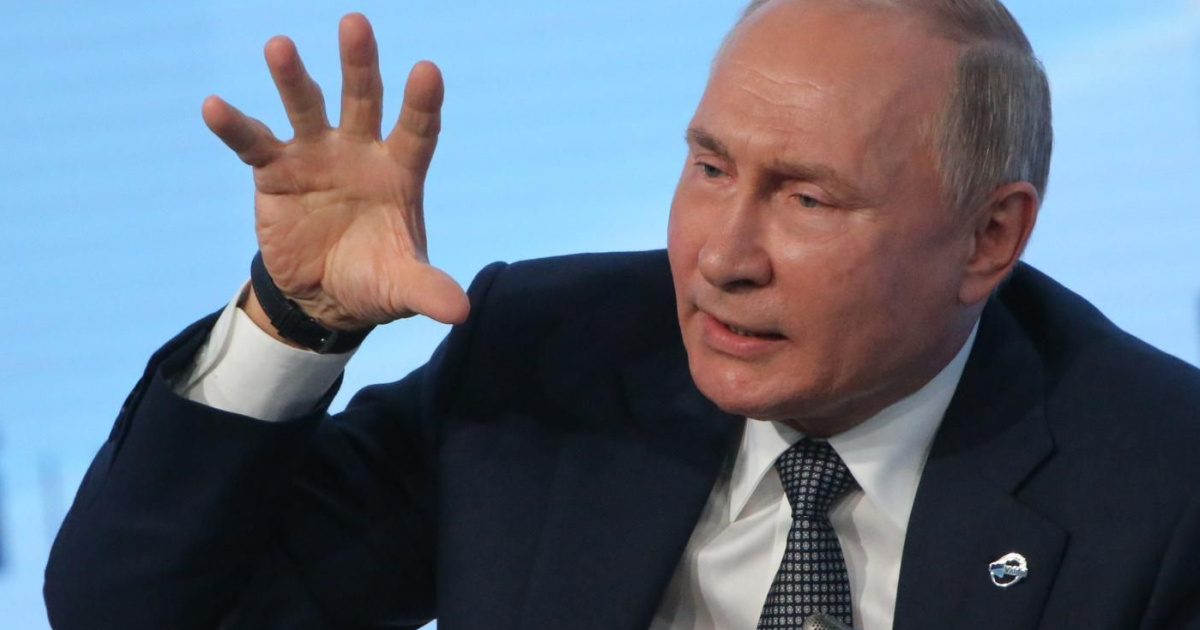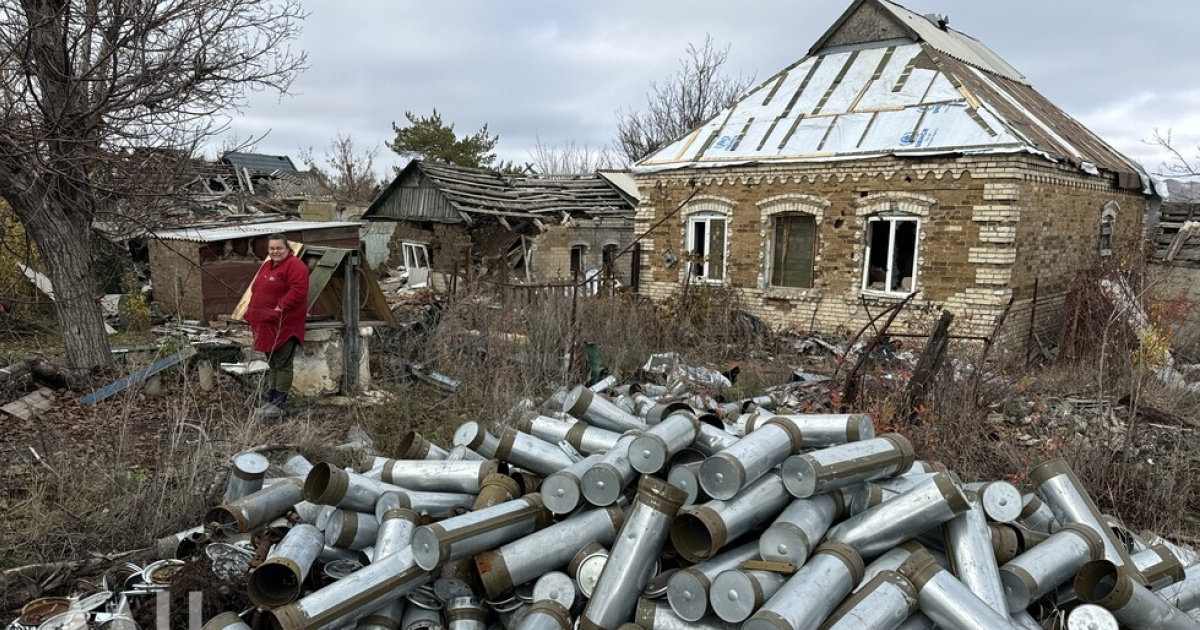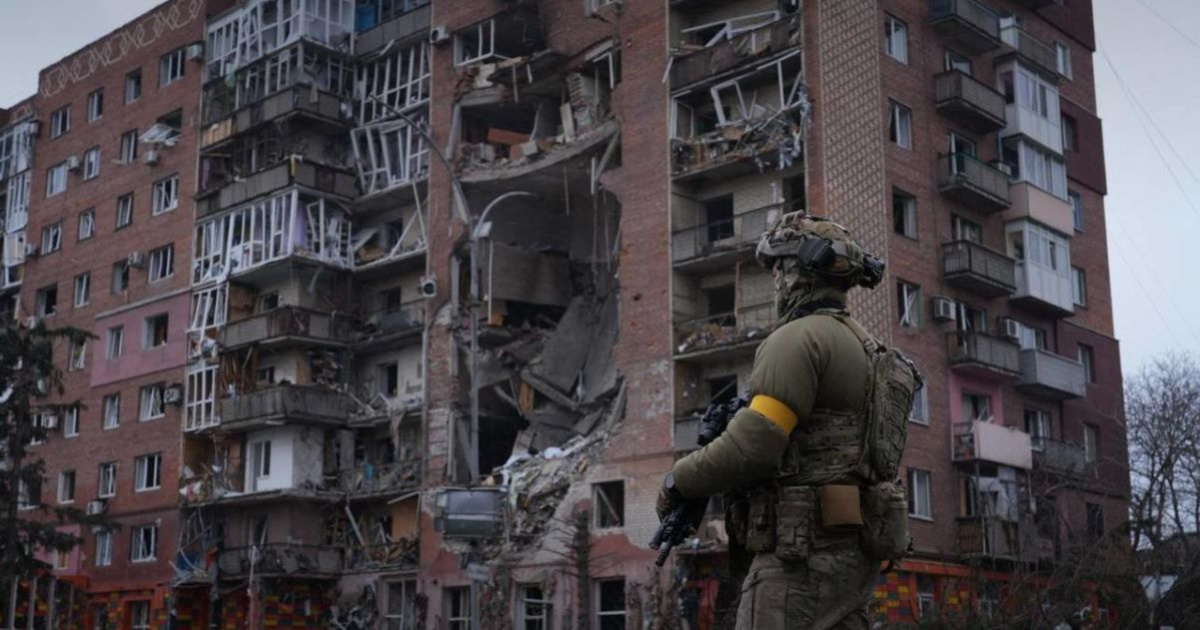
The russian Foreign Intelligence Service has sent a statement from its head, Sergey Naryshkin, to russian media, in which he reports "reliable data that high-ranking officials of leading Western countries increasingly discuss among themselves the need to replace the current President of Ukraine, Volodymyr Zelensky". The pro-Kremlin newspaper Moskovsky Komsomolets calls this "bad news" because now it's "clear why Russia doesn't eliminate Zelensky"...
"In our interests"
"In particular, during the sidelines of the EU foreign ministers' meeting in November, potential successors were named, including the commander of the Ukrainian Armed Forces Zaluzhny, the head of the Main Intelligence Directorate of Ukraine Budanov, the head of the Office of the President of Ukraine Yermak, former advisor to the Office of the President of Ukraine Arestovych (listed as extremists and terrorists in Russia), and the mayor of Kyiv Klychko", - quotes Moskovsky Komsomolets Naryshkin's statement.
"A wide range - from a military pragmatist to a semi-literate boxer. But what makes them better than the current actor, and why has Zelensky become undesirable?", - the publication wonders and continues: "The Director of the Foreign Intelligence Service states that there are several factors causing dissatisfaction: Zelensky's 'unfulfilled promises to defeat Russia on the battlefield', 'endless rudeness of the Ukrainian president in communication with foreign partners', accompanied by 'boundless corruption'. But most importantly, according to the West, Zelensky has lost the ability to 'maneuver in the conflict with Russia in the interests of Washington and its allies'. And he will have to maneuver (i.e. to engage in negotiations with Moscow) 'according to the assessment of the American intelligence community, given the situation on the Ukrainian theater of military operations', possibly in the near future".
"So, Zelensky 'will not be able to be a party to negotiations with Russia in the interests of a temporary freezing of the conflict and saving the Russophobic Kyiv regime' because he 'has gone too far in creating an image of an uncompromising supporter of war with Moscow until victory'. Whereas any of the presented 'successors' allegedly will be able to implement the scenario desired by the West: creating a 'sanitary border' between Russia and Europe, for which it will be necessary to achieve the 'cessation of hostilities between Moscow and Kyiv at the moment when the Ukrainian Armed Forces completely lose their offensive potential'", - the publication quotes.
"Once again, in simple terms", - the author of the Moskovsky Komsomolets’ article explains to readers. "The West has realized that soon the Ukrainian Armed Forces will lose their potential. Right now, the military-industrial complex of Europe and the United States are unable to restore it to help Ukraine gather strength, time is needed, so the conflict needs to be frozen, possibly by giving Russia part of the territories and promising 'neutral status', 'absence of NATO', 'Russian language rights' and other unfulfilled things that worked before. And Zelensky is incapable of that".
"Now, I hope it's clear why the news about the possible replacement of Zelensky is bad news. An absolutely uncompromising, stubborn, and detached-from-reality president of Ukraine is a guarantee that Russia will have to go all the way until something like the Ukrainian Autonomous Republic appears on the map of the Russian Federation. Since he cannot act 'in the interest of the West', it means it's in our interests. To avoid a situation of being 'fooled again' later, which will happen as soon as compromises and agreements come into play. Let Zelensky stay. By the way, it's now clear why Russia doesn't eliminate him", - concludes the author with their profound thought.
"This emptiness is increasingly getting on our nerves"
Naryshkin's statement did not go unnoticed by the First Deputy Chairman of the State Duma Committee on CIS Affairs, Konstantin Zatulin. In a conversation with Gazeta.Ru, he readily agrees: "If Zelensky does not abandon the decision to cancel the elections, a coup may occur in the country".
"Zelensky's presidential term expires in April next year. He has already secured a decision from parliament not to hold elections. In this case, a deal was made within the Ukrainian political class. It leaves a repulsive impression. It will be very difficult after April to argue that Ukraine should be supported because it is a democratic country fighting against Russia, which is an empire of evil. But in Russia, elections are held, and in Ukraine, they are canceled. If Zelensky does not back down, if he does not give up his desire not to hold elections, other scenarios may be activated—essentially a coup or a revolution", - prophesies Zatulin.
"This is certainly a risky option in the conditions of military actions, and I'm not sure that the West will ultimately bet on such a scenario. But just in case, including to make Zelensky reconsider, make a different decision, improvise, and conduct, even if fake, elections – I don't exclude that this topic is being discussed", - muses the deputy chairman.
He believes that "the rhetoric of Western countries and the authorities of Ukraine currently diverges, so the chances of a coup have increased".
"If President Zelensky doesn't step down, then, no matter what you call it, a coup needs to be carried out. Notice that when it came to 'maidans', that is, similar coups in 2014 and 2005, in the West, all these 'maidans' were presented as evidence of genuine democratization, the freedom of the Ukrainian people. Now, although the West continues to praise the 'maidan', Zelensky himself refuses to make the 'maidan' a sacred means of expressing the will of the citizens of Ukraine. He is already afraid of the 'maidan' today because it could lead to his overthrow. Here too, in the rhetorical lineup, there is a discrepancy between Western propagandists and the authorities of Ukraine. This is what all these statements and analyses conducted by the Foreign Intelligence Service of the Russian Federation are related to. It's a game, an attempt to push something, take something into account. The presence of contradictions, exacerbated in the upper echelons of power in Ukraine, is connected with the failure of the Ukrainian counteroffensive. In these conditions, of course, the chances of various kinds of coups have increased", - Zatulin tries to persuade.
And he doesn't forget to acerbically remind that "all political figures from Ukraine's past are now relegated to the political grave".
"Poroshenko, Yatseniuk, Tymoshenko are now deprived of attention. And it's clear that this is precisely the fertile ground that can serve for any actions related to the seizure of power. That is, gradually around Zelensky, despite all his attempts and what he has achieved from the deputies of the Verkhovna Rada, a void is emerging. And this emptiness is increasingly getting on the nerves of everyone. In Ukraine and beyond", - he assures.
"Not easily, but steadily"
The publication Nezavisimaya Gazeta is forced to state that "the integration of new regions is proceeding in a winding way".
"The Central Election Commission (CEC) has decided to hold the presidential elections in the so-called reunified territories of Ukraine with Russia. As announced by CEC deputy chairman Nikolai Bulaev, representatives of the Ministry of Defense and the FSB have confirmed in writing that the martial law will not be an obstacle. Before the adoption of the resolution, Bulaev reminded his colleagues that in September of this year, elections were held in the Donetsk People's Republic (DNR), Luhansk People's Republic (LNR), the Zaporizhzhia, and Kherson oblasts according to Russian law for regional parliaments and local authorities. 'Together, we coped with this task and saw that the electoral system formed in four subjects of the Russian Federation in a relatively short time is not only functional but operates exceptionally professionally', - he emphasized. However, according to the legislation, successful consultations with law enforcement agencies do not deprive the CEC of the right to suspend the electoral campaign if necessary and then, if possible, resume it", - narrates the publication.
The imposition of occupation rules by russian authorities on Ukrainian territories no longer bothers the newspaper; instead, it notes that "for holding any elections in new subjects of the Russian Federation, many special moves have been invented".
"For example, extraterritorial areas that can be created in any regions of Russia where supposedly migrants from Ukraine are located. Moreover, the authorities of the DNR, LNR, the Zaporizhzhia, and Kherson oblasts are allowed not to establish the exact number of voters – their quantity is determined based on actual participation in the vote. And, of course, truly strange security measures – the secrecy of the names of members of election commissions and the addresses of the polling stations, which are known to everyone locally, of course", - Nezavisimaya Gazeta notes.
And it feigns concern: "Nevertheless, as it seems, the political integration of these four regions with Russia is proceeding although not easily, but steadily. There are more problems, understandably, with legal integration, primarily in its socio-economic aspects. In principle, a similar experience was gained as a result of the annexation of Crimea, for which a transitional period was introduced, subsequently extended in many directions and still largely in effect. Therefore, it is not very clear for what reasons the optimistic deadline for completing the integration of the eastern Ukrainian lands was set until January 1, 2026. At the same time, some legal norms of the Russian Federation were supposed to take effect even earlier".
"But, evidently, it still didn't work", - the newspaper emphasizes. "So, in recent days, the government, for example, has turned to the State Duma with an urgent bill, which will be approved by the deputies this week. It concerns mandatory motor vehicle insurance (OSAGO). Russian insurance was supposed to start working nationwide from January 1. However, as stated in the explanatory note, 'there is currently a need to extend the non-application of OSAGO legal regulation in new territories until December 31, 2024'. The Russian government does not specify the reason for this need, but it is clear that the issue is the impossibility of making such insurance mandatory. However, vehicles leaving the new territories must have Russian insurance".
"And a very fresh initiative on additional conditions for the integration of new regions with Russia was introduced on December 11 by a group of State Duma deputies and senators. The names of the parliamentarians suggest that the bill will undoubtedly be passed – and then state-owned enterprises, as well as legal and physical entities, will be exempted from old Ukrainian debts or court decisions independent of Russia in the Donetsk People's Republic (DNR) and Luhansk People's Republic (LNR). The exemption from previous recoveries is expected to be supported again until 2026", - Nezavisimaya Gazeta asserts purportedly.
"Do not compare Kerensky with Zelensky"
While all the media seems to have calmed down about the "conflict" between Zelensky and Zaluzhny, except for the pro-kremlin "political analyst" Kirill Averianov. In the pages of Izvestia, he decided to once again ponder "the conflict between political and military leadership" in Ukraine.
"At the end of 2023, the confrontation on the Ukrainian political stage between two figures strategically important for the future of the entire 'Ukraine' project becomes increasingly clear: President Volodymyr Zelensky and Commander-in-Chief Valeriy Zaluzhny. To understand the origins of their current relationship, one must go back to the past, specifically to the first months of the special military operation, where the Russian army stormed Mariupol's Azovstal plant. At that time, the positions of the president and the commander diverged for the first time: Zelensky categorically demanded not to surrender the plant, while Zaluzhny pointed to unjustified losses. Even then, former MP Ilya Kiva, who was recently found dead, speculated that Zaluzhny would simply lose his position after the battle for Azovstal. However, this assumption did not materialize – after all, there are not so many generals in Ukraine capable of even vaguely understanding and applying themselves to the real combat situation", - delves deeply into the topic Averianov.
And further, at length, retells how "in June 2022, Zaluzhny initiated a law" and "after June 4, 2023, when the Armed Forces of Ukraine launched the widely advertised 'counteroffensive" and "in October 2023, he spoke in favor of ending the useless counteroffensive sooner", and so on, sprinkling his reasoning, apparently for persuasiveness, with quotes from Western media, and concluding that "the murder of Ilya Kiva in Russia, who repeatedly predicted the arrest and even elimination of Zaluzhny, may be intended to divert attention from the growing contradictions between the presidential administration and the chief commander's office".
Finally, looking at the mountain of reasoning constructed, Averianov questions himself: "How will the situation develop further?"
And he answers, as if he knows for sure: "Of course, Zelensky is strongly tempted to simply dismiss Zaluzhny, attributing to him, for example, the 'surrender of the south'. However, the retired general with high ratings would automatically get an excellent springboard for a political career. Moreover, it is unclear how the Armed Forces of Ukraine will react. Therefore, most likely, Zelensky will adhere to another strategy: discrediting the chief commander and gradually taking away from him the levers of real influence on the army. By the way, this is already happening: Zelensky conducts meetings directly with some of Zaluzhny's subordinates, about which the chief commander learns retroactively".
Attention! For Averianov, this situation "strongly resembles the drama that unfolded in Russia in the summer-autumn of 1917, when the war-torn country was led by the ambitious and unprincipled Prime Minister Alexander Kerensky, and the army was led by the talented General Lavr Kornilov".
"Their interests inevitably came into conflict, and when Kerensky felt that Kornilov was becoming a dangerous competitor, he declared him a rebel, discredited him, and removed him from the political scene. Of course, there is no need to compare Kerensky's personality to Zelensky's, and Zaluzhny to Kornilov, but the conflict pattern between the head of state, unrelated to the military, and a professional military leader heading the armed forces repeats in history again and again", - warns the "political analyst."
And he warns about something else: "Another classic plot is unfolding in Ukrainian politics—a conflict between a former patron and a protégé who has come out of obedience. Oligarch Kolomoisky has filed a lawsuit against Zelensky, challenging the president's order that deprived the businessman of Ukrainian citizenship. Before his election as president, Zelensky was considered Kolomoisky's project, and most likely, it was. However, now there is enmity between them, which will inevitably continue to escalate. Probably, the influential Ukrainian oligarch harbors plans towards his former protégé in the spirit of 'I created you, and I will kill you'".
"Not surprisingly, in such an unfavorable domestic political atmosphere, Zelensky is considering the cancellation of the presidential elections in Ukraine next year", - concludes Averianov, seemingly unaware of events in the past month.
The review was prepared by Mykhailo Karpenko, OstroV





